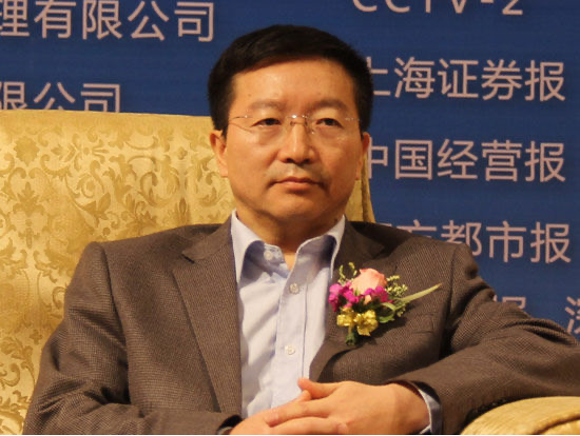
On April 13, CoStone Capital CEO Wang Qiwen delivered a keynote speech at the 3rd China (Western) High-tech Industry and Venture Capital Matchmaking Promotion Conference. He said that China’s traditional manufacturing industry had two major advantages.
READ
CoStone Capital recently made a donation to the China Europe International Business School (CBIES) Endowment Fund, and announced that it would strengthen in-depth cooperation with the CBIES so as to explore the cooperation model between venture capital companies and research institutions. In an interview, Zhang Wei said that facing the rapid development of the venture capital industry in China, venture capital companies need all-round innovation in terms of project discovery and project exit.

This week, 365house.com (300295), which was invested by CoStone Capital five years ago, will soon be open for subscription on the ChiNext. However, CoStone Capital Chairman Zhang Wei said in an exclusive interview with China Business News this Tuesday that the high returns from IPO exits were unsustainable. In contrast, he believes that exits through the merger and acquisition market will be more attractive with the adjustment of the valuation system of the capital market.
READ
The 11th China Venture Capital and Private Equity Investment Annual Forum was held in Beijing from December 7th to 8th, 2011. The theme of this forum was “Game · Capital · Changes”. CoStone Capital Chairman Zhang Wei said at the meeting that China’s rapid growth in the past could be attributed to the development of the manufacturing industry.
READ
As early as 2000, venture capital enjoyed vigorous development in China. At that time, inspired by the gratifying situation of the NASDAQ and the global growth enterprise market, Shenzhen Stock Exchange prepared to launch the growth enterprise market. Shortly, four or five hundred Venture Capital companies emerged in China and raised about 450 billion, one-third of which were located in Shenzhen. These companies were ready to do something big in full swing. However, due to the bursting of the dot-com bubble and the fact that there were very few real winners in the global growth enterprise market except the United States and Israel, domestic venture capital market then slowed down the development.
READThe year 2019 marks the fortieth anniversary of China’s Reform &Opening-Up, once again, we meet at the turning point of history. What’s the next step for the game, is there any clear guidance? The answer is affirmative.
Our country is enjoying a good momentum of development, which does not come from the Washington Consensus nor the Beijing Consensus. China’s experience has proved that both the visible hand and the invisible hand are crucial: the visible hand, stands for the government-led reform, and would yield benefits for reform and opening up; the invisible hand, stands for the Marginal Power represented by the private sector, and would improve economic efficiency and tax collection, create jobs and employment opportunities.
Provided that we want to protect and expand the benefits form reform, three simple but mandatory agreements are to be made and followed: No.1 Private ownership must be recognized, protected and treated equally with public ownership constitutionally, both ownerships are scared and inviolable;No.2 Make further clarification of the principal position of market economy, “deepen economic system reform by centering on the decisive role of the market in allocating resources”, as President Xi addressed in the third Plenary Session of the 18th CPC Central Committee;No.3 Implement the guiding principles of “comprehensively promoting law-based governance” of the fourth plenum. The rule of law is essential for economic growth, irreplaceable to protect private ownership, and necessary to encourage innovation and entrepreneurship.
Above are three rules for us to avoid falling into the Middle-income Trap. Assuming that we are breaking systematic barriers to private enterprises’ participation in market economy, and boosting innovation and entrepreneurship of our society, then we are heading towards a promoting direction. We are marching in the path of light, regardless of the ups and downs of Sino-US relationship, the drop in GDP growth rate, or the monetary policy.
These principals also apply on knowing how better to run a business: don’t be hedged by rules and regulations at the beginning, pay more attention to your survival, and you’ll learn more when you start your second business.
For many years, Huawei has been the only Chinese company on the list of the Top 50 R&D Spenders. Regardless of the economy and its income, what Huawei has been doing is investing in its future, dedicated to R&D, continuously and resolutely. This provisional work underscores Huawei’s accomplishments, making Huawei anindustry leader.
So, there are standard answers on how to run a company,which could be summarized as concentration and professional dedication, continuous investment on innovation and trying harder in R&D. Entrepreneurship is also important, every single company needs entrepreneurs to push aside all obstacles and difficulties, to implement strategies and ideas. We, as investors, are destined to look for such outstanding entrepreneurs and their companies, invest in them and partner with them.
At this key point of history, a country, a company, or asingle individual, will all need to find the right path. Four decades after the Reform and Opening-up, it’s time to learn from our experience and stop “wadding across
